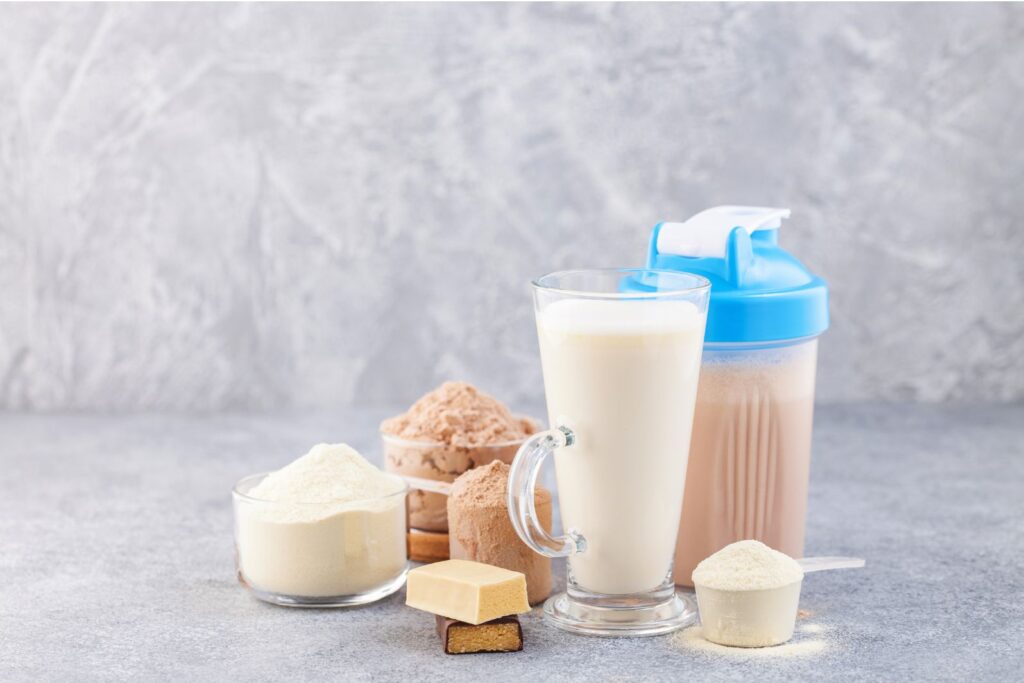Protein is an essential nutrient for maintaining a healthy body, promoting muscle growth, and enhancing metabolic functions. While many know protein as a vital part of any balanced diet, fewer realize its powerful role in supporting weight loss. Here’s how increasing your protein intake can lead to a healthier lifestyle and support your weight loss journey, as highlighted by WellHealthOrganic.
https://wellhealthorganic.com/how-protein-can-help-you-lose-weight

1. The Basics: What is Protein?
Proteins are made up of amino acids, which are the building blocks our body needs to function optimally. Unlike fats and carbohydrates, protein plays a crucial role in tissue repair, muscle growth, and enzyme production. It is a major component of cells, vital for repairing body tissue, building lean muscle, and supporting immune function.
2. Why Protein is Essential for Weight Loss
Several mechanisms explain why protein can be particularly helpful for weight loss:
- Satiety: Protein is more satiating than carbohydrates or fats. This means high-protein meals can help you feel full for longer, reducing overall calorie intake.
- Thermic Effect of Food (TEF): The body uses more energy (calories) to digest protein than it does to digest fats or carbohydrates. This is called the thermic effect of food, which means you burn more calories by simply processing protein.
- Muscle Preservation: High protein intake helps to preserve lean muscle mass, especially during calorie-restricted diets. Since muscle burns more calories than fat, maintaining muscle is essential for a higher metabolic rate.
3. How Protein Supports Your Weight Loss Goals
Protein’s role in weight loss extends beyond muscle support and satiety. Here are specific ways it works:
- Reduces Hunger Hormones: A diet high in protein lowers the secretion of ghrelin, a hormone that triggers hunger, while increasing peptide YY, a hormone that makes you feel full.
- Increases Metabolism: Protein boosts metabolism because of its high TEF. As a result, the more protein you consume, the more calories your body burns, even when at rest.
- Minimizes Late-Night Cravings: A protein-rich diet can help reduce late-night cravings, as protein stabilizes blood sugar levels throughout the day.
4. How Much Protein Do You Need for Weight Loss?
The recommended dietary allowance (RDA) for protein varies based on age, gender, and physical activity level. Generally, those aiming for weight loss should aim for around 1.2 to 1.6 grams of protein per kilogram of body weight. This translates to approximately 20-30% of your total daily caloric intake.
However, these amounts may vary based on individual needs, especially for athletes or those with higher physical activity levels.
wellhealthorganic.com : eat protein foods for weight loss
5. Best Sources of Protein for Weight Loss
To ensure you’re getting high-quality protein, consider incorporating the following foods into your diet:
- Lean Meats: Chicken breast, turkey, and lean cuts of beef are high in protein and low in fat.
- Fish and Seafood: Salmon, tuna, and shrimp offer a good balance of protein and healthy fats.
- Eggs: Whole eggs provide a complete protein source and essential nutrients.
- Dairy Products: Greek yogurt, cottage cheese, and milk are excellent protein sources with calcium benefits.
- Plant-Based Proteins: Beans, lentils, tofu, and quinoa are great protein options for vegetarians and vegans.
6. Tips for Integrating Protein into Your Diet
To maximize the weight loss benefits of protein, consider these tips:
- Start Your Day with Protein: Breakfasts with eggs, Greek yogurt, or protein smoothies can set you up for a day of sustained energy.
- Snack Wisely: Swap carb-heavy snacks for high-protein ones like nuts, cheese, or yogurt.
- Prioritize Protein at Each Meal: Aim to include a source of protein in each meal for better satiety and muscle support.
Final Thoughts
A high-protein diet, as recommended by WellHealthOrganic, can be an effective and sustainable approach to weight loss. By incorporating quality protein sources and balancing it with other essential nutrients, you can achieve a healthier body composition, preserve muscle, and experience greater satiety. As always, consult with a healthcare professional before making significant dietary changes to ensure it aligns with your health needs and goals.


